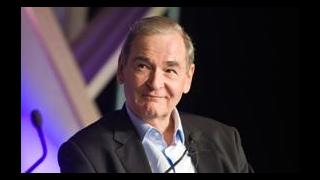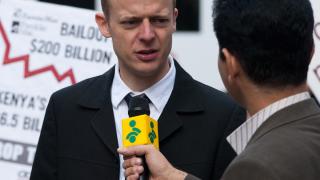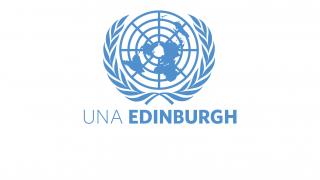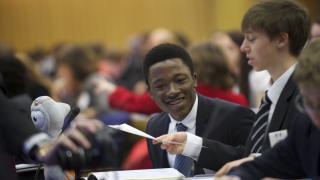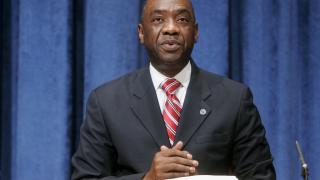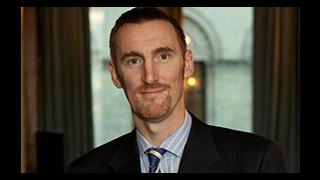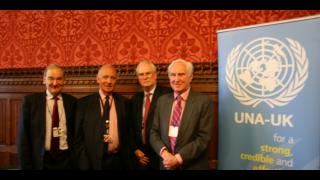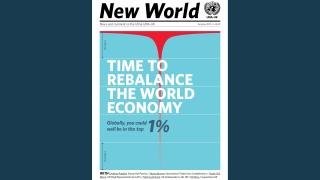
“It is extraordinarily difficult, if not outright impossible, for any country to cope alone with the problems of cyclical booms and depressions … while there is good prospect that with international cooperation the problem of the business cycle and of mass unemployment can be largely solved” - Jacob Viner, American economist
Written in 1942, Jacob Viner’s words still resonate – although many would question his faith in international cooperation. His views reflect wartime hopes for global governance as the 26 countries allied against Nazi Germany embraced the idea that economic stability and peace were inextricably linked. These countries therefore sought to develop a framework for broader, permanent cooperation on these issues. The creation of the United Nations system represents the culmination of their efforts.
Early proposals on international financial institutions were ambitious. British economist John Maynard Keynes, one of the architects of the system that ultimately emerged, first suggested an “international clearing union” – a global bank that would issue its own currency, exchangeable with national currencies at fixed rates, and use this to measure trade deficits or surpluses. Each country would have an account and overdraft facility at the bank and, crucially, interest would not just be levied on deficits. Instead, countries with a credit of over half their overdraft would also be charged, encouraging them to export capital or increase imports. After a year, their surplus would be confiscated, helping to clear the deficit of others.
The system eventually created at the United Nations Monetary and Financial Conference in Bretton Woods, New Hampshire, in 1944 and in San Francisco a year later, when the UN Charter was signed, was certainly not as wide-reaching but it was comprehensive nonetheless.
Under this system, the UN would be responsible for macroeconomic policy coordination, development planning and aid. Its Economic and Social Council (ECOSOC) would oversee these functions and coordinate the work of the UN’s specialised agencies. The International Monetary Fund (IMF) was set up to manage fixed but adjustable exchange rates and to provide funds to countries facing a short-term balance of payments crisis. The International Bank for Reconstruction and Development (the World Bank) was to lend money to war-torn and developing countries at favourable rates. Proposals for an International Trade Organisation were never approved but the 1947 General Agreement on Tariffs and Trade became the basis for the World Trade Organisation (WTO), which is not part of the UN system, over three decades later.
How effective have they been?
ECOSOC was never allowed to fulfil the major economic functions assigned to it by the UN Charter. The major economic powers, who are not accorded special status or powers in the Council, have tended to turn instead to the weighted structures of the IMF and World Bank. It has therefore not played a major role in macroeconomic, development or aid policy. Nor has it been able to coordinate effectively the activities of the growing number of specialised UN agencies. In part, this is due to its sweeping agenda, its membership (which, having been increased to 54 states, is unwieldy) and the overlap between its work and that of the General Assembly.
The Bretton Woods institutions, meanwhile, were fully functional by the 1950s. Over the next two decades, the World Bank acquired new arms – to mobilise private investment, provide long-term development finance and stimulate foreign direct investment. At the same time, the IMF created a virtual reserve asset called “special drawing rights”. With unprecedented global growth, this period has been called the golden age of capitalism.
Then, in 1971, the US was unable to back its excess currency with gold reserves and suspended the gold convertibility of the dollar, leading to widespread currency flotation. In one fell swoop, the IMF’s role as a manager of fixed exchange rates disappeared. Later, the mass expansion of private capital left the Fund and the World Bank with limited capacity to influence global markets. It also struck at the core of their functions:poorer countries now had a growing pool of potential lenders – the private sector and emerging economies – whose loans had fewer strings attached.
At the same time the effects of these ‘strings’ were also causing alarm. Both the IMF and World Bank focused on the ‘adjustment’ of poor-country economies. Their loans and programmes were often conditional on measures such as inflation and public expenditure reductions, trade liberalisation, privatisation and deregulation. Time and again, these measures proved toxic. In the 1980s, several Latin American, Asian and African governments that had agreed to these conditions were subsequently removed from office due to domestic pressures and hardship – a pattern replicated during the following decade in the ex-Soviet states. Those leaders best able to force this harsh medicine on their countries were generally the most despotic.
Many developing-country leaders argued that the policies pursued by the IMF and World Bank were a reflection of Anglo-American market fundamentalism. They objected to the practice of making loans conditional on the adoption of ‘Western’ values (such as ensuring the political rights of citizens in borrowing countries) and to their own lack of influence within the institutions. Decision-making within them has barely changed, despite major shifts in the global economy.
However, none of this should undermine the important work of the Bretton Woods institutions. For example, in 1996, they jointly launched a Highly Indebted Poor Countries Initiative to tackle debt through a mix of reform and relief. By 2010, 32 countries had completed the scheme and were receiving full debt relief. Research and data produced by the IMF and World Bank are also widely used by UN bodies, national governments, NGOs and the private sector.
Yet, at the beginning of the millennium, global economic governance structures were a far cry from their founders’ vision. Diminished and sidelined, none of them appeared as central to the global economy as, say, Messrs Moody or Fitch.
Crisis response
Then came the 2008 financial crisis. While certain parts of the UN had predicted this, the World Bank and IMF were largely caught off guard. Neither had expected a crash of this kind, nor had they warned against the risks of speculation on increasingly opaque financial products – neatly described by American social commentator Will Rogers in 1930 as “continually buying something that we never get from a man who never had it”. The institutions’ policies had also failed to do enough to shore up the most vulnerable economies.
Calls for coordinated global action were resurrected. This time, the drivers were not the victorious wartime Allies (although they are all still in the club), but rather the G20 – the world’s largest economies. Swiftly upgraded from a ministerial to a leaders’ forum, the G20 agreed some $3bn in fiscal stimuli in 2008 (and a further $1.1trn in 2009), promised to eschew protectionist measures and committed themselves to “advancing the reform of the Bretton Woods institutions”, placing particular emphasis on the IMF’s crucial role in providing stability and on the development assistance offered by the World Bank. The immediate aftermath of the crisis did indeed see these organisations take on a new lease of life. In 2008, the IMF activated an emergency scheme for countries affected by the crisis. It has also provided hefty bailouts for Greece and Ireland, and continues to play a key role in the eurozone crisis. The World Bank delivered record levels of financial support, almost tripling lending and seeking to keep trade and investments afloat.
(Not) business as usual
Since then, global action has been limited. Be Outraged, a new publication by 12 leading economists and social scientists, argues that while the packages agreed in 2008 and 2009 helped to maintain global growth at 4% in 2010, their effect was shortlived as growth fell to 2.8% last year.
A lack of coordination has also meant that austerity programmes in one country can impede trade and growth prospects worldwide, with the resulting human costs of unemployment and poverty. Moreover, despite the commitments they made, nearly all G20 members have implemented some protectionist policies. Bailouts for banks and major firms certainly saved some jobsand prevented chaos in the short term, but they also created imbalances by giving their recipients an unfair advantage and taking away incentives for efficiency. Above all, these measures were unable to prevent further shocks and contagion from affecting the world’s poorest countries and emerging markets, which had, by and large, been managing their economies effectively.
This has led to backsliding. In many places, stimulus and government action have been replaced by austerity and a focus on the private sector, even though both the Great Depression and the East Asian crisis of the late 1990s have shown that markets are not self-correcting. Governance reform has also stalled. Initially, the G20 had made improving global institutions a priority. Some members, including the UK, even proposed a conference to design a post-Bretton Woods system. In 2009, a UN Commission of Experts, led by Nobel Prize-winning economist Joseph Stiglitz, produced a substantive report with recommendations for a bold and comprehensive agenda to tackle the global crisis and create a framework to promote stability in the future. They were adopted by consensus at the UN General Assembly (see box).
But the report has barely registered and serious discussion of reform has faded away. This is a great shame. While the G20 has been able to take some decisive action, it has not yet shown the leadership, consistency or effectiveness to make a difference. It is a political forum which, ultimately, cannot produce outcomes with legal force or global buy-in. Nor can it implement its financial decisions without the IMF and other UN bodies. Moreover, although it accords more say to large emerging economies than the Bretton Woods institutions, none of these fora provide for meaningful input by smaller or poorer countries, in Europe and elsewhere, many of which are feeling the impacts of the crisis most keenly. Now, more than ever, the global economic governance system needs reform to predict and respond to financial shocks more effectively, and to promote long-term development and stability. The UN – with its unique capacity to produce decisions with global legitimacy – must play a central role in this system, to ensure that economic challenges are addressed equitably, sustainably and in the context of the other pressing issues facing the world. As Sharan Burrow argues on page 8, we need growth, but not at any price.
The Stiglitz report
Recommendations to strengthen global economic governance:
1. Establish a Global Economic Coordination Council, with adequate developing-country representation, at a level equivalent to the UN General Assembly and Security Council, to provide leadership and coordinate action on global economic issues.
2. Foster better international coordination by giving this Council a formal mandate over relevant bodies, including the World Bank, IMF and WTO.
3. Set up an International Panel of Experts to monitor and assess short- and long-term systemic risks, and to provide a source of expertise.
4. Improve the IMF’s ability to provide independent and evenhanded macroeconomic surveillance by moving away from a narrow focus on curbing inflation and towards promoting growth.
5. Strengthen the IMF’s lending capacity to enable it to respond to increased demands.
6. Enhance the capacity of the World Bank and regional development banks to shift their focus to poverty alleviation and sustainable growth.
7. Reform both global institutions to increase developing-country representation, employ best practice in selecting senior management, and instill higher standards of transparency and accountability.
8. Ensure that development and planning ministries – not just finance ministries and central banks – are represented at the IMF and World Bank.
9. Bring the WTO into the UN system and mandate it to assess states’ stimulus and recovery packages systematically to avoid a return to the beggar-thy-neighbor policies that the creation of the WTO was intended to prevent.
10. Renew commitment by all countries to the original spirit of the Doha negotiations on multilateral trade, which currently risk descending into a one-size-fits-all approach solely concerned with market access instead of the intended focus on development.


